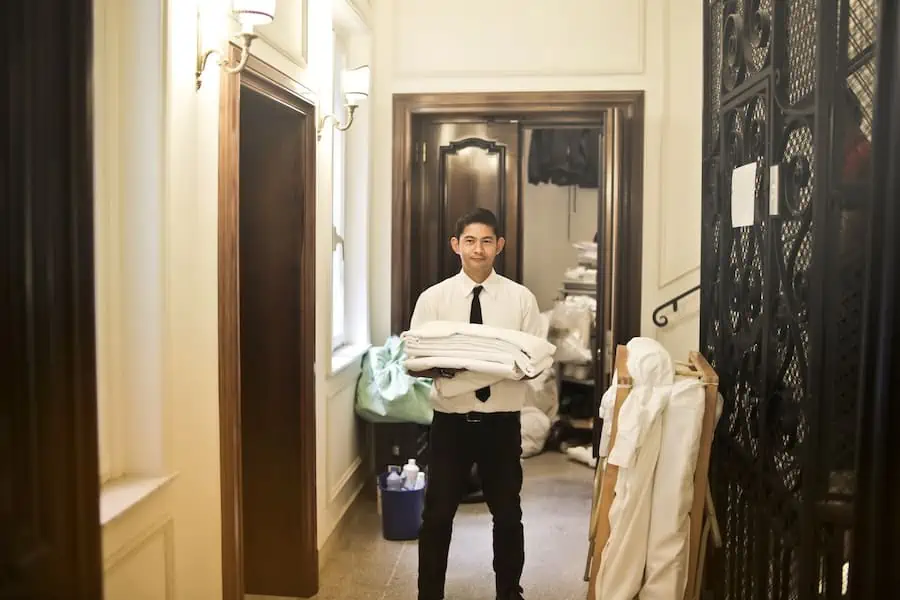
One of the best things about going on vacation is being able to return to a crisp, clean, freshly made bed every day. However, this little luxury could soon be a thing of the past, as many hotel chains move away from daily cleaning—or start charging extra for this service. The average cost of providing daily guest room housekeeping can be high for a hotel, since it comprises around half an hour per room plus the expense of purchasing and maintaining equipment, and cleaning supplies. Hotels allege that clients actually prefer things this way, but is this true, and if so, are guests actually putting their health at risk?
Post-Pandemic Blues
The disruption in the daily cleaning of hotel rooms was disrupted by the pandemic, when even the most daring of tourists often preferred not to have their room cleaned by a stranger. A quick search online will reveal, however, that this isn’t actually the case, with many guests complaining that having to clean rooms themselves wrests from their vacation vibes. Hotel workers aren’t very pleased, either. Recently, over 100 hotel workers marched in Washington, DC, chanting, “What do we want? Clean rooms! When do we want it? Every day!” Across the US and Canada, the hospitality union, Unite Here, is waging a ware over this issue, determined to ensure that jobs are saved.
How Often Do Hotel Rooms Need Cleaning?
Hotel cleaning practices vary greatly from one hotel chain to the next, but there are certain requirements that cannot be circumvented. One is professional cleaning, since most guests hardly pack the cleaning they products they need to eliminate germs and ensure they stave off a wide array of infections. The most common infections people pick up from hotel rooms are tummy bugs and respiratory bugs such as colds and pneumonia. Typical surfaces that can house germs include bathrooms and sheets and pillows. One 2020 study found that after a person with pre-symptomatic COVID-19 occupied a hotel room, there was significant viral contamination of a host of surfaces, including the sheets, quilt cover, and pillow case. A typical telephone in a four-star hotel can have an average of 137 colony-forming units (CFU) per square inch and other germ-infested areas and items include remote controls, bathroom counters, and desks. They can contain germs like Bacillus spp (which is linked to respiratory and gastrointestinal infections) and cocci (which can cause pneumonia, meningitis, and food poisoning).
Adding Insult To Injury
Stopping cleaning staff from doing their work adds another complication—works that piles up and is more difficult to complete. As such, at the end of a week, workers have to deal with wet, soggy towels in bathrooms, overfilled waste bins and filthy counter tops and desks. Introducing regular cleaning schedules ensure that staff not only have the hours they need to pay the bills, but also that they aren’t so overwhelmed that they find it difficult to clean all required surfaces within an allotted time.
More and more hotels are eliminating daily cleaning from their routine offerings. This is harming cleaning workers’ livelihoods and increasing germ pile-ups in rooms. While the downturn in cleaning was perhaps justifiable in 2002, it is arguable that it is time for shake-up and a clean-up, to maintain workers’ right to earn a fair wage while also ensuring guests avoid illness during their stays.




















